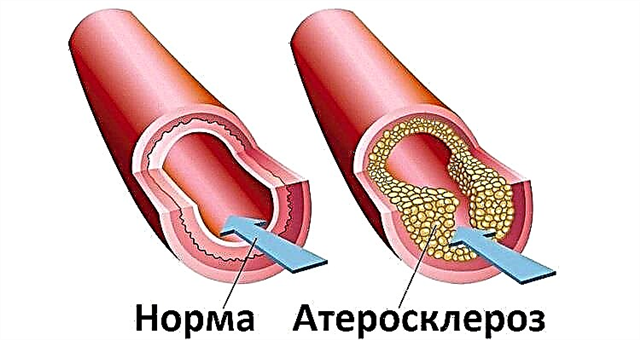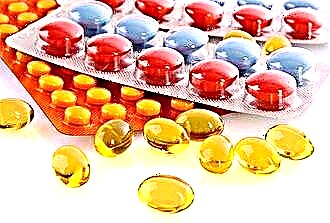A normal human heart rate is 60-80 beats per minute. An increase in this level is defined as a rapid heart rate (tachycardia). A high heart rate should not be confused with a high heart rate. These are two different concepts. With a high heart rate, heartbeats are felt as strong beats, and with a fast pulse, the number of heartbeats per minute increases. An increase in the heart rate can be a pathological process that requires special attention and treatment. Only a specialized doctor will answer the question of what to take with a rapid heartbeat. Any self-medication can lead to the development of undesirable consequences.
Why is there a rapid heartbeat?
The occurrence of a rapid heartbeat can be triggered by various factors, including both the body's natural reactions to the influence of external stimuli, and the presence of pathological changes in organs or systems. The rapid pulse has two forms of occurrence: physiological and pathological.
Physiological palpitations appear against the background of psychoemotional disorders, excessive physical exertion, prolonged exposure to sunlight, overeating, insomnia, alcohol, caffeine, drugs, hormonal activity with increased excitement. Violation of the heart rhythm due to such influencing factors is a natural compensatory reaction of the body. Treatment of physiological tachycardia is not required. To stop the attack, it is enough to calm down and rest.
The pathological form of a frequent pulse occurs due to the presence of concomitant diseases, in which a rhythm disturbance acts as a symptom, and the treatment of heart tachycardia with tablets is an integral process.
Such pathologies include:
- hypertonic disease;
- heart disease (myocarditis, cardiomyopathy, heart failure);
- endocrine system pathologies (hypothyroidism, hypoglycemia, diabetes mellitus);
- diseases of the hematopoietic organs (anemia, leukopenia);
- renal failure;
- malignant neoplasms;
- internal bleeding;
- brain damage;
- infectious pathologies.
Treatment of palpitations, which is determined exclusively by the attending physician, directly depends on the etiology of the condition.
In pregnant women, the condition is diagnosed in 70%. An increase in the pulse rate in this category of patients occurs by 10-20 units, even in a normal state. This process is natural, since a woman gains weight and often succumbs to stress. As a cure for discomfort with tachycardia, you can use sedative drugs with a natural composition, for example, valerian or motherwort.
Tachycardia pills: what to take with a rapid heart rate?
The doctor prescribes therapy for palpitations depending on the reason that triggered the development of the pathological process. The basis of drug treatment is made up of antiarrhythmic groups of drugs, which are supplemented with sedatives and antipsychotics. In severe forms of tachycardia, doctors recommend a comprehensive diagnostic examination (ECG, Holter monitoring, endocardial mapping), which will make it possible to establish an accurate diagnosis and the cause of the rhythm disturbance.
So, what can you drink in case of a tachycardia attack, without putting your life in danger?
Sedatives. If the rapid pulse has arisen against the background of physiological factors (stress, physical activity), it is enough to take a sedative and try to relax as much as possible. The best options are pills or infusions of valerian, motherwort, hawthorn, peony. They are made on the basis of natural ingredients and have no particular contraindications. The mechanism of action of such substances lies in their influence on the inhibitory receptor system, which causes a general relaxation of neural activity.
In the presence of etiological pathologies, sedatives for heart palpitations are used only in complex therapy, if necessary.
Antiarrhythmic medicines. They have a direct effect on the myocardium. These drugs include membrane stabilizing substances, calcium antagonists, beta-blockers, cardiac glycosides. Each of these groups is assigned taking into account the type, mechanism and cause of rhythm failure, the definition of which is a necessary measure of their application.
Membrane stabilizing substances - pills for heart palpitations, which help slow down the rate of transfer of electrical potentials responsible for myocardial contractility.
These include:
- Moderate to strong sodium channel blockers. The action of drugs is to block currents generated by the sodium potential. The use of drugs reduces the electrical activity of cardiomyocytes by reducing the total action potential.
Representatives: Disopyramide, Quinidine, Mexiletin, Propafenone.
- Potassium channel blockers. The drugs of this group affect the process of potassium entry into the cell, changing the state of the channels through which the microelement enters. A change in its concentration changes the ratio of potentials on different sides of the membrane, causing a decrease in the electrical activity of myocardial cells.
These are drugs "Amiodarone", "Dronedarone".
Beta blockers. This is a group of pharmaceuticals that block beta-adrenergic receptors, making them the mainstay of tachycardia drugs. Beta blockers are effective for more than just heart palpitations. The group is included in the protocols for the treatment of myocardial infarction, hypertension, coronary artery disease and heart failure.
The action of beta-blockers inhibits the excitatory effect of the hormone adrenaline, as a result of which the contractile ability of the heart decreases, myocardial conductivity is inhibited and, as a result, the rhythm slows down.
These are the drugs "Atenolol", "Labetolol", "Carvedilol", "Nebivolol", "Betaxolol".
Calcium channel blockers. Calcium antagonists help to relax the smooth muscles of the myocardium and arterial walls, and also limit the absorption of calcium by the myocardium. As a result, the strength of the "calcium current" decreases, which leads to a slowdown in the frequency of myocardial contractions, expansion of arteries, and a decrease in afterload on the myocardium.
If you want to choose a drug for tachycardia, choose a selective beta-blocker in a standard single dose (in the absence of prescribed contraindications). This group of products will quickly and effectively help to cope with palpitations, gaining time to make an appointment with a cardiologist.
Many calcium channel blockers are not prescribed for tachycardia ("Amlodipine"), since they have a peripheral effect. They relax the blood vessels, but do not affect the contractile velocity of the myocardium, which does not change the rhythm of the cardiac cycle.
Cardiac glycosides... Decrease the contractility in tachycardia can be a cardiac glycoside based on digitalis "Digoxin". It is the drug of choice for heart failure accompanied by fibrillation. The tool slows down the rate of transmission of electrical impulses from the atrium to the ventricles, but does not have an immediate effect.Medicines from the category of glycosides are prohibited for independent use, since they have a number of severe side effects and are shown to a narrow category of patients.
Each remedy from the presented list is prescribed exclusively by the attending physician. It is the cardiologist who determines what needs to be used based on etiological factors.
Contraindications to drugs
The solution of cardiological problems (in particular, a rapid pulse and pathological disturbances of the heart rhythm) - in the use of various methods and drugs. Before drinking any remedy, you need to consult with your doctor. The required medicine is selected individually. Most pharmaceuticals have a wide range of contraindications.
The use of beta-blockers is prohibited for people with asthma, symptomatic hypotension, bradycardia, decompensated heart failure.
Calcium channel blockers are contraindicated in:
- arterial hypotension;
- in a state of shock;
- critical aortic stenosis;
- bradycardia;
- left ventricular systolic dysfunction;
- heart failure;
- sinoatrial blockade;
- hypersensitivity to the components of the drug.
Potassium channel blockers are not prescribed for people with:
- bradycardia;
- sick sinus syndrome;
- cardiogenic shock;
- hypokalemia;
- hypomagnesemia;
- arterial hypotension;
- lung pathologies;
- sinoatrial blockade.
Potassium channel blockers are contraindicated during pregnancy and lactation.
Sodium channel blockers are prohibited if you have:
- bradycardia;
- arterial hypotension;
- severe heart failure;
- sinoatrial blockade;
- atrioventricular block;
- sick sinus syndrome.
Digitalis cardiac glycoside "Digoxin" is contraindicated in unstable angina pectoris, myocardial tamponade, bradycardia, ventricular tachycardia, isolated stenosis, acute myocardial infarction, as well as in case of hypersensitivity to the drug components.
With extreme caution, you should use drugs that stop the rapid pulse during pregnancy. Most of these drugs affect the fetus and are found in breast milk.
Therefore, the treatment of such heart pathologies in pregnant women must be carried out under strict medical supervision.
Rapid heartbeat is a pathological or physiological process of heart rhythm disturbance, which requires a doctor's consultation. If there are signs of tachycardia, you should consult a cardiologist. Only a specialist will tell you what to do during bouts of frequent pulse, what drugs to use to stop tachycardia and how to prevent the development of complications. By following all medical recommendations, you can get rid of many pathological manifestations of a particular condition.



